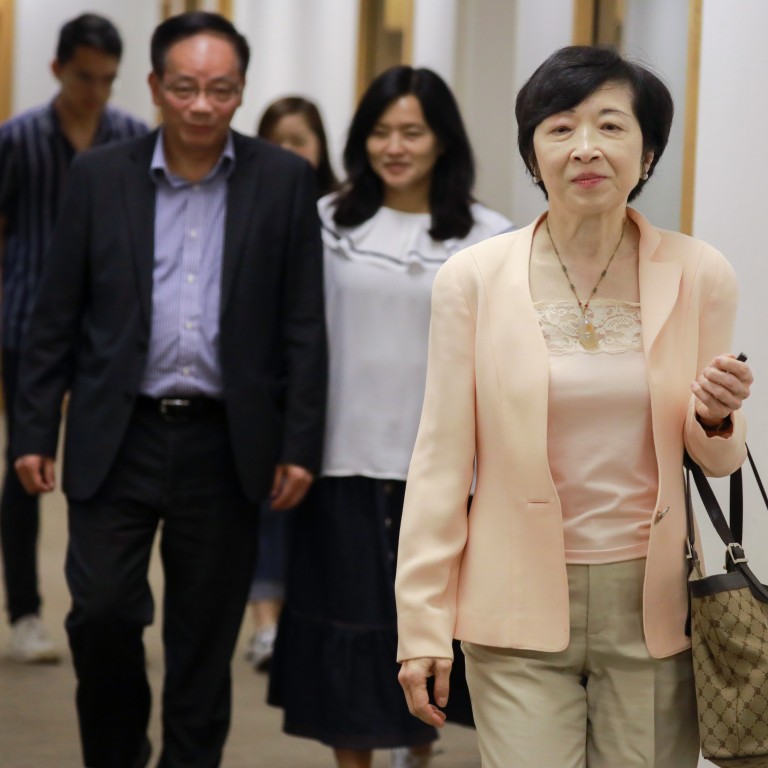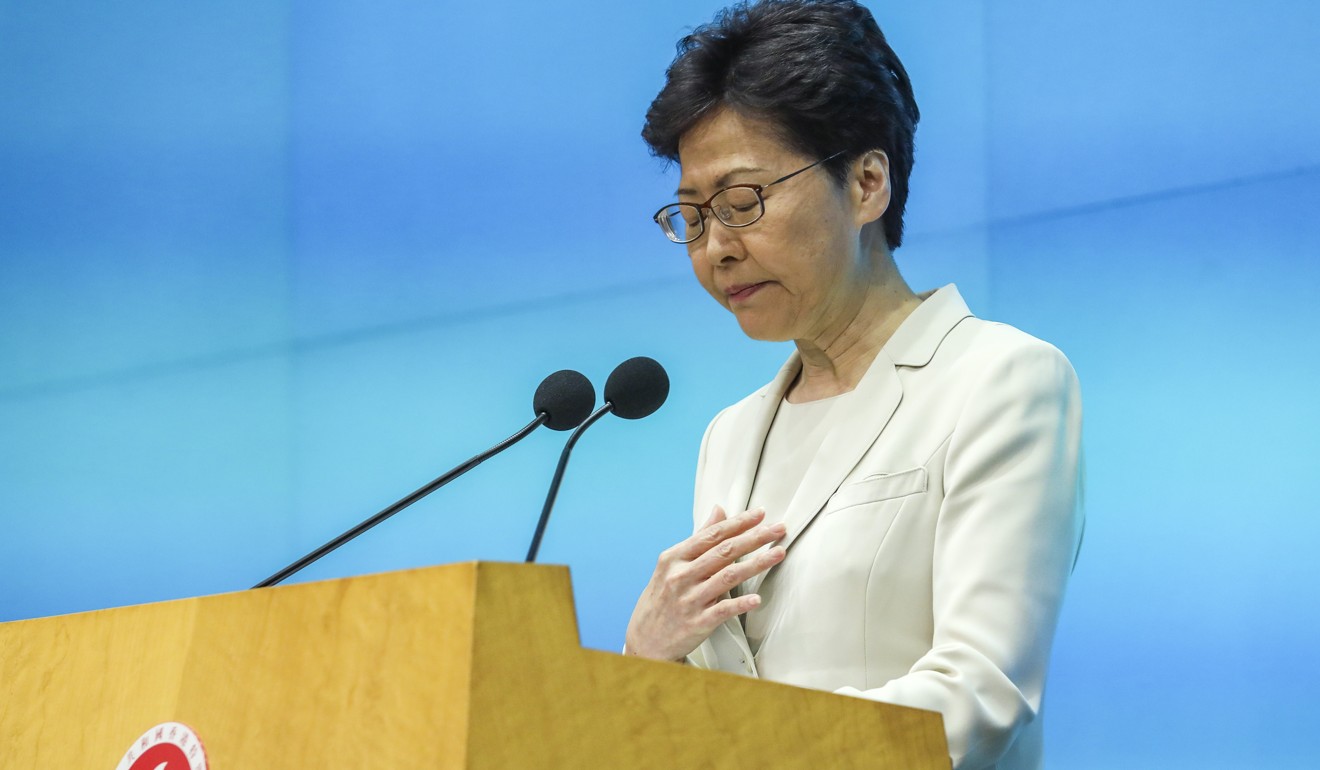
Executive Council members join Hong Kong leader Carrie Lam in apologies over suspended extradition bill
- Fanny Law and Ip Kwok-him said they underestimated the strength of feeling against the legislation among city residents, after huge marches and violent clashes
- Carrie Lam already offered her ‘most sincere and solemn apology’ for her handling of the crisis
Two advisers to Hong Kong’s leader apologised to the public on Wednesday for underestimating the backlash triggered by the now-suspended extradition bill.
US President Donald Trump also weighed in on Monday, calling the Hong Kong protesters “very effective” but stopping short of voicing support for their demands.
“They’re obviously having a big impact because it’s been pulled back and it’ll be pulled back further,” he told Time magazine.
Beijing’s foreign ministry spokesman Lu Kang responded on Wednesday that while he was not aware of the interview, Trump had said what happened in Hong Kong was China’s affair.
“He believes the Chinese central government and the Hong Kong government can sort it out themselves. I think this is the right attitude,” Lu said.
In Hong Kong, Law told a radio show Lam should shoulder the biggest responsibility as she was the one who made the call after everybody raised their opinions with her.
“But I think we, in Exco, are also responsible for that. We should also apologise to the public ... I’m willing [to say sorry] as I really thought at that time 99.9 per cent of Hongkongers would not be affected by the bill.”
Two apologies, no resignation: can Lam reboot political career?
Critics feared it would open people up to unfair trials across the border.
The duo’s apology was triggered by angry callers who demanded Exco members be held accountable for the saga.
Despite the city leader’s softened stance, opponents and protesters still insisted she should withdraw the bill completely.

The Civil Human Rights Front, which organised the two massive marches on two previous Sundays, was set to deliberate with the legislature’s pan-democratic camp on Wednesday afternoon regarding their next move.
Ip, a former lawmaker from the Democratic Alliance for the Betterment and Progress of Hong Kong, admitted he had expected Lam to bow during her apology, which she did not, but he did not question her sincerity.

He said Lam could not scrap the bill as the leader had to take care of the feelings of her allies, who had thrown their weight behind the bill.
“She needs to count on the pro-establishment bloc for her governance in the coming three years,” he said.
Ip also warned the row was set to pose problems for pro-establishment politicians eyeing district council seats in November’s elections.

